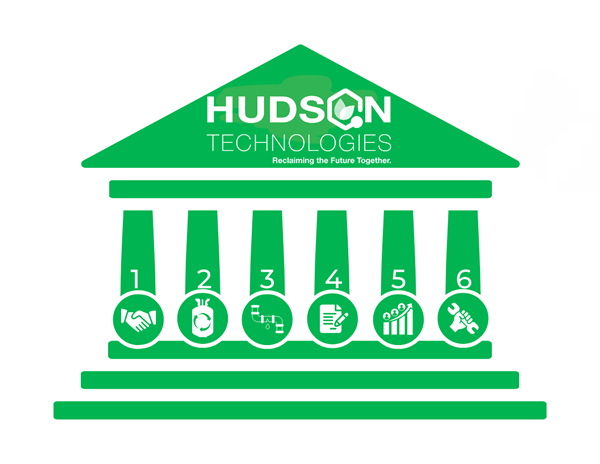Our CEO and President Brian Coleman had the honor of being a Technical Advisor to the report and was able to share his expertise on how we can minimize refrigerant leaks and maximize end-of-life recovery and reclamation.
October of 2022, the Environmental Investigation Agency (EIA), the Institute for Governance & Sustainable Development (IGSD), and the Natural Resources Defense Council (NRDC) co-authored The 90 Billion Ton Opportunity: Lifecycle Refrigerant Management Report. This report lays out tangible interventions for federal and state policymakers, major corporations, and equipment owners and operators to minimize refrigerant leaks and maximize end-of-life recovery and reclamation. Embracing Lifecycle Refrigerant Management globally can prevent fluorocarbon emissions equal to 90 billion metric tons of CO2 this century—nearly three full years of global energy-related carbon dioxide emissions today.
Lifecycle Refrigerant Management (LRM) is a circular economy solution leading the path to net-zero emissions in an efficient and achievable manner. To take on the responsibility of reducing our emissions, adopting Lifecycle Refrigerant Management practices will help us reach our goal faster; leading the industry on the journey to net zero.
- Enhance product stewardship: The most important practices of Lifecycle Refrigerant Management include proper disposal of refrigerant, recovery, and leak repair, all critical to achieve a thriving environment. All stakeholders can contribute to enhanced product stewardship.
- Increase Recovery, Reclamation and Reuse: To maintain our circularity, we rely on refrigerant recovery, reclamation, and reuse. Refrigerant recovery is the first and most important step in the process. Without proper recovery, refrigerant reclaimers are not able to reclaim used refrigerant. When reusing reclaimed refrigerants, we are all working towards making a positive impact on the environment. We encourage the industry to recover all used refrigerants, and Hudson offers incentives for recovery, making it a win-win for all parties.Hudson is EPA-certified and one of the largest reclaimers in the nation. With our Clean Exchange Reclaim Program, Hudson makes the process easy and stress free. There are no signup fees, disposal fees, or admin fees in our program. We also offer On-Site R-Side® Refrigerant Services to help with proper recovery of used refrigerants.
- Leak Reduction: Coolant appliances leak refrigerant slowly and continuously if not maintained properly. Improving maintenance and leak reduction to reduce emissions is a high priority as it can lead to great climate benefits. Operators and technicians should also adopt best practice leak monitoring and repair practices. Repairing leaks ensures the maximum amount of refrigerant is available for recovery.
- Reporting and Enforcement: Stakeholders report the lack of enforcement aids and violations in the LRM field, such as violations of existing laws regarding refrigerant management. To monitor LRM provisions, efforts have been suggested to ensure it is an even playing field for everyone.
- Workforce Development: Proper training for employees is crucial and a foundation of LRM. Technicians need to be trained to ensure they can handle the ever-changing industry and the demands of new lower GWP refrigerants, reclamation of all refrigerant gases, and leak detection.
- Installation and Servicing: Installation is the starting point of HVACR equipment’s life. Without proper installation and verification, LRM cannot be achieved. To ensure the longevity of the system, it is important to repair underlying leaks.

Hudson is here to help with Lifecycle Refrigerant Management solutions across all six pillars. By implementing lifecycle refrigerant management practices, such as minimizing leaks, proper recovery, reclamation, recycling, and disposal, businesses can reduce greenhouse gas emissions and mitigate their environmental impact.



